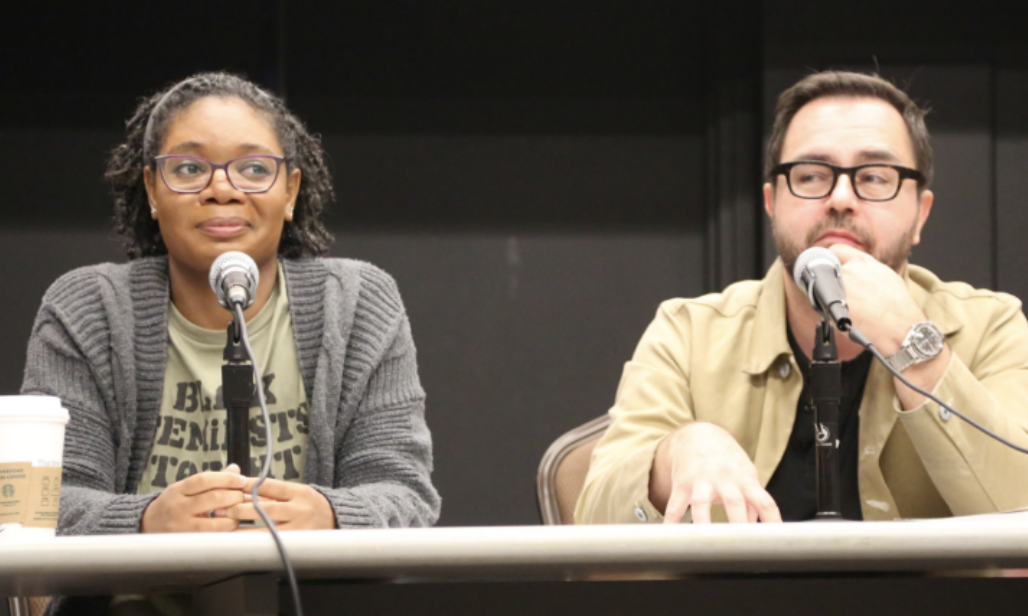The Center for Diversity and Inclusion held a screening of the film “Horror Noire: A History of Black Horror” and a discussion exploring racism in the horror film genre, and the history of Black Americans in horror films and Hollywood. The film was based on the book “Horror Noire: Blacks in American Horror Films from the 1890s to Present,” by Robin R. Means Coleman Ph.D.
Ashlee Blackwell, adjunct professor of music, theatre and film, and producer and co-writer of the film, and Phil Nobile Jr., editor-in-chief of Fangoria Magazine and executive producer of the film, spoke at the event about their favorite parts of filming the movie.
“My favorite moment was getting a green light from Shudder [a video on demand service for horror, thriller and supernatural fiction films owned by the AMC Network] after a year of pitching it to everyone else who said no,” Nobile said. “My other favorite moment was watching the premiere in Los Angeles surrounded by all the folks that were in the film and seeing how much they were enjoying seeing the film happen.”
Blackwell said the editing process was fulfilling and fun.
“It was really fantastic to just be there and then go through everything,” Blackwell said. “It confirmed for me my love for being a curator as well.”
Both Blackwell and Nobile spoke in an interview about the importance of understanding the history of the role of African Americans in the horror film genre from the 1890s to the present day.
“It’s important to understand the history of Black horror because it’s a conversation starter, and it opens up the floodgates to understand that there are a variety of perspectives, approaches, ideas and concepts from people who are underrepresented in this genre,” Blackwell said. “Everyone should get an opportunity to tell their own story so that history doesn’t get lost.”
Blackwell’s interest in the horror genre led to her creation of Graveyard Shift Sisters, a website used to bring attention to Black women creators in the horror film industry.
“I started Graveyard Shift Sisters because I had this feeling of anger and urgency,” Blackwell said. “Dr. Coleman’s book had been [published] for a few years at that point, and no one was talking about it. And I didn’t want her hard work to get lost.”
Yohanna Jones ’26 said she decided to go to the event for her inequality in American society class.
“I learned about how Black actors felt as though they were expressing themselves when they were playing these Black characters in the Black horror films,” Jones said.
Nobile said it is important to examine the relationship between African American history and the horror film genre.
“In the terms of this documentary, it was important because no one had done it before,” Nobile said. “Certainly, Dr. Coleman had written her book and Ashley had been writing about it online, but we had an opportunity to tell an untold story to an audience that didn’t know it existed.”
It was important to take an opportunity to tell untold stories, especially the stories of African Americans in America, Nobile said.
“I hope that students who decided to watch this film might see a value in looking backward,” Nobile said. “If we got three people in that room to go watch some old movies, I would feel great about it.”














































